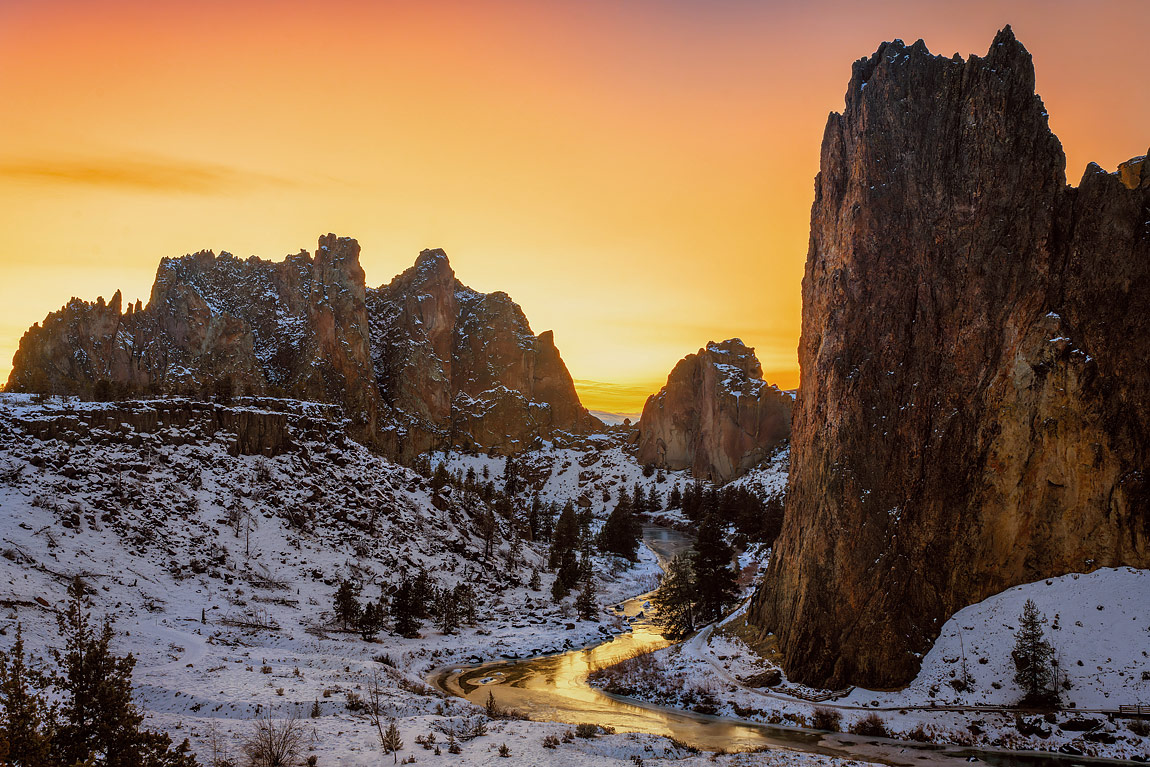One of my favorite photography destinations in Central Oregon is Smith Rock State Park. It is a short 40-minute drive from my home in the town of Bend. I return to Smith Rock again and again as it offers an endless array of composition, light and seasonal possibilities ranging from grand vistas to smaller abstract subjects.
After a recent snowfall, I ventured up to the park on a Sunday evening, hoping for some good sky color and an interesting reflection on the Crooked River, which runs through the park and has had a role in carving its topography. There was a promising layer of thin clouds in the sky as I headed north toward the park and as I scouted the composition I was looking for. However, as the sun set, the clouds cleared, yielding a perfectly blue sky overhead, with a low cloud layer over the Cascade Mountains to the west.
I decided to wait, hoping that doing so would reward me with some pastel colors during the blue hour. As the sun continued to set, there were some very subtle shades of pink in the sky, which gave way to soft oranges and then a brilliant yellow on the horizon, both backlighting and illuminating the rock formations and river before me with a beautiful reflected glow.
I set up my trusty Z7 to aperture priority, used exposure bracketing (3 shots one stop +/-) to ensure I had a good exposure, and fired several frames. The illumination lasted for a very brief period of time, perhaps 60 seconds and then it was gone. I spent a few minutes more thinking about perhaps getting some star photos as they emerged in the darkness. Then, as the temperature dropped and my fingers started to numb, I decided to call it a session and headed home.
As is often the case, I left the park resolved to return again on a different day, with a different sky, different light and perhaps a different composition. That is what we do, isn’t it? Create an image, enjoy it, think about it, and given the opportunity, try again. I have a plaque on my desk with a quote attributed to Michelangelo. It says simply, “I am still learning”. Aren’t we always?


